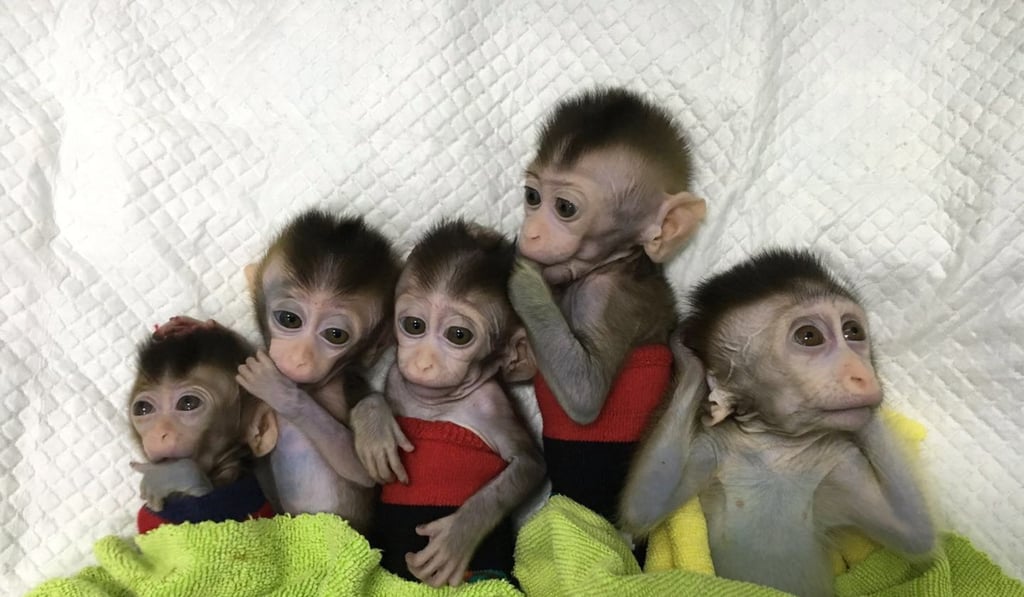Advertisement
China has tweaked genes to create five mad monkeys. Is that ethical?
- It is the only country in the world with the technology to clone primates bred in captivity
- Expert calls it ‘very irresponsible’, while others say it is ultimately justified
Reading Time:4 minutes
Why you can trust SCMP

Medical ethics experts are divided over an experiment in which Chinese scientists cloned gene-edited monkeys to induce mental illness in them.
The five cloned monkey embryos had been edited to remove the BMAL1 gene, leading the baby animals to display symptoms of conditions such as anxiety, depression and schizophrenia as a result of disruption to their circadian rhythms, according to a study published in National Science Review on Thursday.
The findings by researchers at the Chinese Academy of Sciences’ Institute of Neuroscience could help develop treatments for a range of human medical conditions including sleep disorders, diabetes, cancer and neurodegenerative diseases, according to team member Chang Hung-Chun.
Advertisement

The study has drawn attention for its use of cloned animals, as well as the researchers’ use of the gene editing tool CRISPR/Cas 9.
Advertisement
That tool was also used by He Jiankui, the Chinese scientist who recently created the world’s first genetically edited human babies as part of a controversial and unauthorised experiment.
Advertisement
Select Voice
Select Speed
1.00x